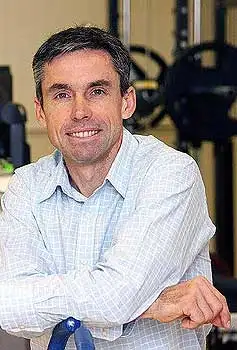
Auckland's Nelson Street Cycleway, also known as Te Ara I Whiti - the Lightpath, opened in December 2015.
By Professor Steve Stannard.
One of the things about being a politician, I suspect, is that you would want to leave a legacy of your time in elected office. For many past and future politicians that may be changing a law, securing a trade deal, or getting something really big and important built.
Whether this "legacy" is well appreciated, generally known, or indeed a legacy per se, probably depends upon the point of view of the judge – Joe Public.
Our most recent high-profile politician to close the book on a political career is Sir John Key.
As a non-follower of what happens in Parliament, I am not attuned to whatever he might have done in terms of legislative change and I don't know what construction sites he turned the first sod on. But what I will remember about Key's influence will be his timely investment to build cycleways around the country.
In affluent countries, cycling is becoming more and more popular as a leisure activity. More bicycles are being sold in places like Australia and the USA, many of these sales to middle aged men and women for whom cycling is a social glue.

Professor Steve Stannard from the School of Sport and Exercise.
Much to the chagrin of motorists, they ride around in bunches before hitting the cafes, where they can talk all things bike and show off their latest two-wheeled purchase. Despite what a few red-faced drivers might think, the cycling craze hasn't really hit New Zealand yet.
In Melbourne, you're more likely to see a business deal go down at the cafe after a bike ride than in the boardroom, and in San Francisco a beard without a fixie (fixed geared bike) would be seen as strange. Not to mention places like Amsterdam and Copenhagen, where cyclists rule the roads.
As I see it though, the legacy of the National Party's cycleways will not be in the increased economic activity at the Remuera cafes, but that in 25 years time this initiative will have helped cycling become a routine form of transport for urban dwellers.
Getting more people on bikes is proven to make cycling safer, which in turn, gets more people on bikes, for leisure and transport too.
Normalising cycling as transport will reap huge benefits for cities like Auckland and Hamilton by removing cars from the road, making commute times much quicker and making us more sustainable and productive.
Cycle commuting does more than just that though. For me this is Key's true legacy.
A recent large-scale study published in the British Medical Journal, which followed 263,450 adults in the United Kingdom for five years, showed that cycling commuters had a more than 50 per cent lower risk of dying from heart disease and a 40 per cent lower risk of dying from cancer. Interestingly, these health effects of cycling to work were considerably better than walking to work.
So in 20 years time when it's de rigueur for Jo Public to tuck her suit trousers into her socks and slap on a satchel to pedal to work, we can thank Key. I reckon he'd be pleased about that.
Professor Steve Stannard is a Professor of Exercise Physiology at Massey University.